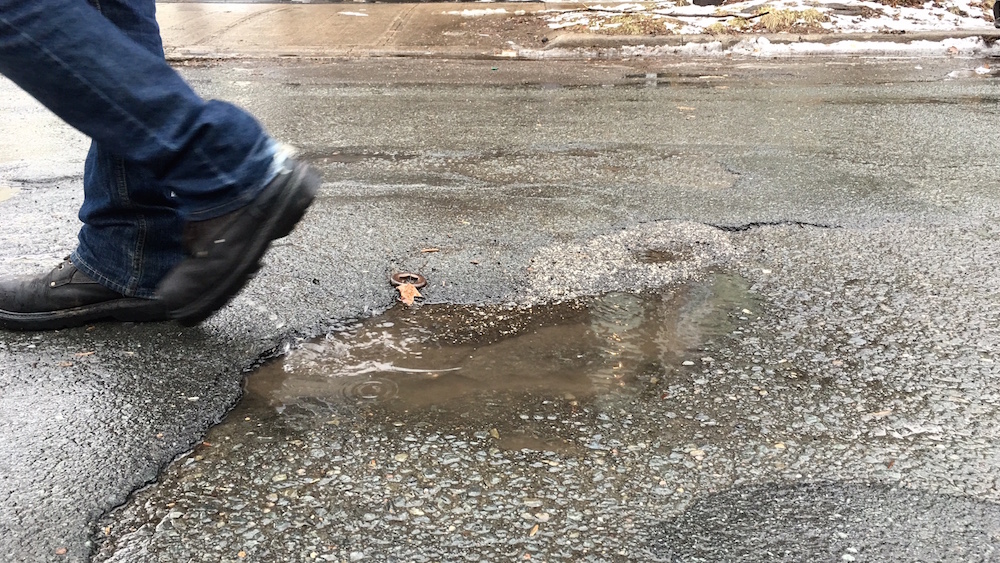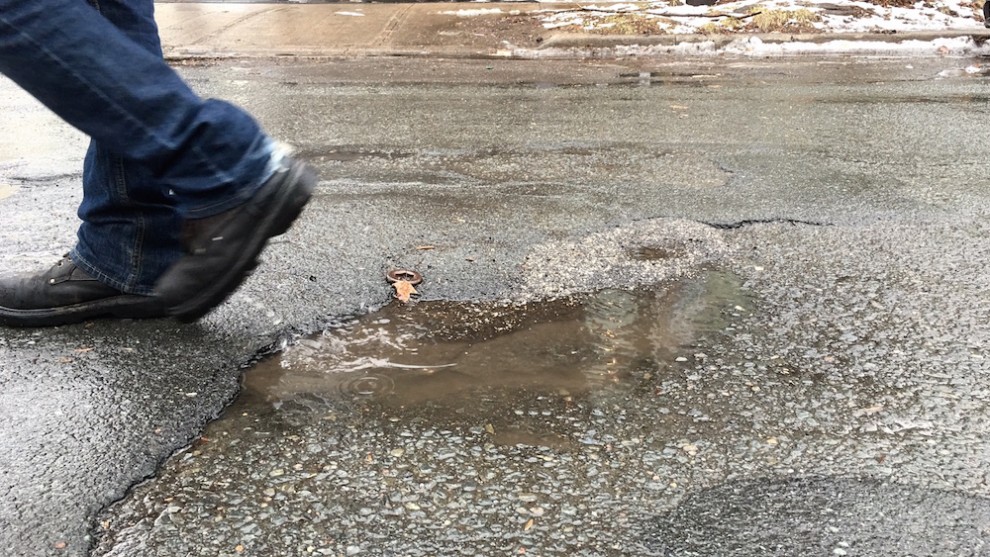Potholes
Potholes a danger to cyclists
Bicycle Nova Scotia spokesman fears potholes deter people from riding

caption
Spring means potholes.
caption
Spring means potholes.The last of the melting snow has revealed the season’s damage to Halifax roads.
While this past winter saw less snowfall than the one before it, the regular cycle of changing weather throughout the year has left many streets in need of some repair.
For cyclists even a few potholes are bad news. Related stories
Cycling group promotes winter safety
Adam Barnett, a spokesman for Bicycle Nova Scotia, said safety becomes a cyclist’s biggest concern.
“Cars can go over (the potholes), bikes can’t,” said Barnett. “They’re either lucky enough to see it and stop or they have to swerve.”
Barnett said that he sees cyclists hitting potholes and getting injured every year. As an experienced cyclist himself, he said the larger potholes scare him. He worries that those with less confidence on a bike will become deterred from cycling.
Since potholes are bound to crop up each year, Barnett said the solution lies in the city’s willingness to fix them.
“I think that as long as the communities make it a priority, (the city) will listen,” said Barnett. “Cyclists need to have their voices heard.”
Jennifer Stairs, a spokeswoman for Halifax, said the city has already received 281 notices of potholes this year. She said the city has a priority system to best address them.
The service standards for Halifax state that potholes eight or more centimetres deep on major roads will be patched within seven business days, depending on the weather. That timeline is extended to 14 days for potholes of similar size on residential side streets and 30 days on rural roads. Potholes less than eight centimetres deep on any roads are patched as resources permit.
“Those timelines are worst-case scenarios,” said Stairs. “Potholes are typically patched well within those timeframes and that is certainly the case so far this season.”
Stairs said that this year is a huge improvement from last year.
While a typical year sees the city spending approximately $700,000 on pothole repairs, projected budgets predict that number to drop by $250,000.
Barnett said that while he’s pleased with the prospect of faster repairs this year, he’s still urging residents to report any potholes that they encounter. He said he wants more people to call in complaints in order to keep potholes a priority.
“We need to encourage more cyclists in an urban setting. Talking to the city is how we’re going to do that,” said Barnett. “I want more people to be comfortable, confident and safe on their bikes.”
